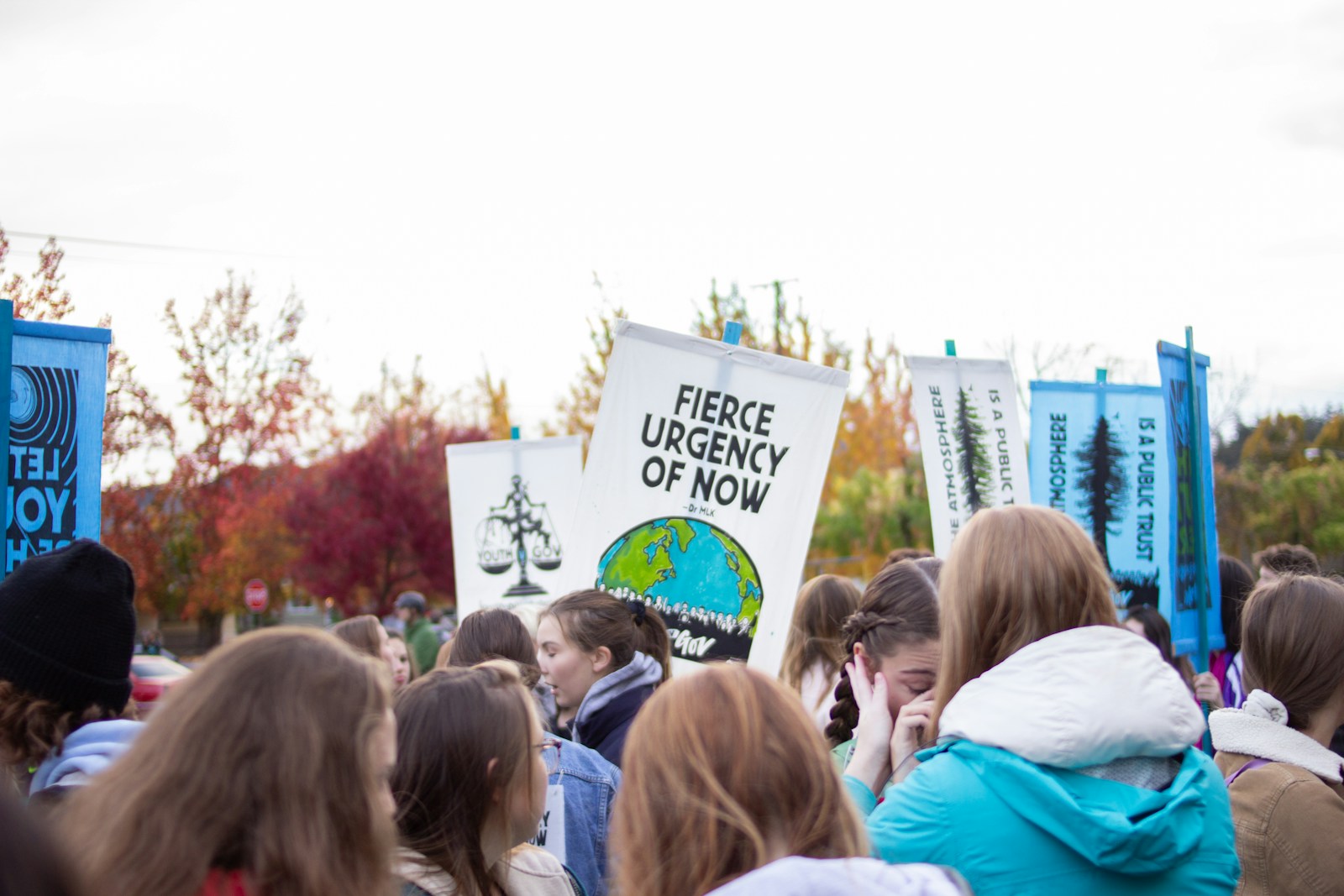The climate crisis is arguably the defining challenge of our era, threatening the very foundations of life as we know it. While the scale of the problem can seem overwhelming, a powerful and increasingly vocal force is rising to meet it: youth. From global strikes to local initiatives, young people are not just inheriting a warming planet; they are actively shaping its future, demanding urgent action, innovating solutions, and inspiring us all to become the next generation of environmental stewards. Their role in climate action is not merely symbolic; it is central to the hope for a sustainable future.
The sheer urgency of the climate crisis resonates most profoundly with young people, as it is their future that stands to be most impacted. This raw realization has fueled a global movement of youth climate activism. Figures like Greta Thunberg have galvanized millions, demonstrating the power of a single voice to ignite widespread protest and demand accountability from world leaders. Beyond high-profile figures, countless young individuals and groups are organizing climate strikes, protests, and advocacy campaigns in their communities, putting pressure on governments and corporations to commit to ambitious emission reduction targets and invest in renewable energy. They are leveraging social media platforms to raise awareness, share scientific facts, and mobilize their peers, demonstrating an unparalleled ability to communicate complex issues in accessible and engaging ways.
However, the role of youth extends far beyond activism and protest. Young people are also emerging as powerful innovators and entrepreneurs, developing practical solutions to environmental challenges. From creating sustainable fashion lines and designing eco-friendly products to developing apps that track carbon footprints or facilitate urban farming, their creativity and tech-savviness are being channeled into tangible environmental improvements. Universities and research institutions are seeing a surge of young minds dedicating their studies and careers to renewable energy technologies, sustainable agriculture, waste management, and conservation science. They are pushing the boundaries of what’s possible, translating scientific knowledge into actionable, real-world solutions that can drive systemic change.
Crucially, young people are also acting as educators and communicators within their own families and communities. Often, they are the ones bringing climate change conversations to the dinner table, challenging older generations to rethink their habits and demanding greater environmental responsibility. They are volunteering for local conservation projects, participating in tree-planting initiatives, organizing community clean-ups, and educating their peers through school clubs and outreach programs. By demonstrating personal commitment and advocating for sustainable lifestyles, they are inspiring behavioral shifts that, collectively, can have a significant impact. Their innate optimism, coupled with a fierce sense of justice, makes them uniquely positioned to inspire hope and action where cynicism might otherwise prevail.
To truly unleash the full potential of youth in climate action, several key elements are necessary. Firstly, meaningful inclusion and empowerment in decision-making processes are vital. Youth voices should not just be heard, but genuinely integrated into policy formulation at local, national, and international levels. Secondly, access to quality education and resources is paramount, equipping them with the scientific understanding, critical thinking skills, and practical tools needed to tackle complex environmental problems. This includes STEM education, environmental literacy, and opportunities for hands-on learning in green industries. Finally, financial and institutional support for youth-led initiatives, whether through grants, mentorship programs, or platforms for collaboration, can amplify their impact and ensure the longevity of their efforts.
The next generation is not merely waiting for solutions; they are creating them. Their passion, innovation, and unwavering commitment to a sustainable future make them indispensable allies in the fight against climate change. By recognizing, supporting, and amplifying their voices and actions, we can truly foster a new era of environmental stewardship, one led with courage, creativity, and an unshakeable belief in a greener planet.
References:
- UNICEF (United Nations Children’s Fund) – Youth Climate Action: Highlights the critical role of youth in driving climate action and provides resources and reports on their involvement. https://www.unicef.org/climate-action/youth-climate-action
- United Nations Environment Programme (UNEP) – Youth and Education: Showcases initiatives and stories of young people taking environmental action and emphasizes the importance of environmental education. https://www.unep.org/topics/education-and-youth
- World Economic Forum: Frequently publishes articles and insights on youth leadership in climate action and sustainable development, showcasing their innovative approaches. https://www.weforum.org/ (Search for “youth climate action” or “young environmental leaders”)
- Fridays For Future: The global youth-led climate strike movement initiated by Greta Thunberg, demonstrating the power of youth activism and mobilization. https://fridaysforfuture.org/
- Youth for Climate Action (UNDP): Showcases how young people are driving climate action in various countries, often with support from international development programs. https://www.undp.org/blog/youth-climate-action-changing-world


